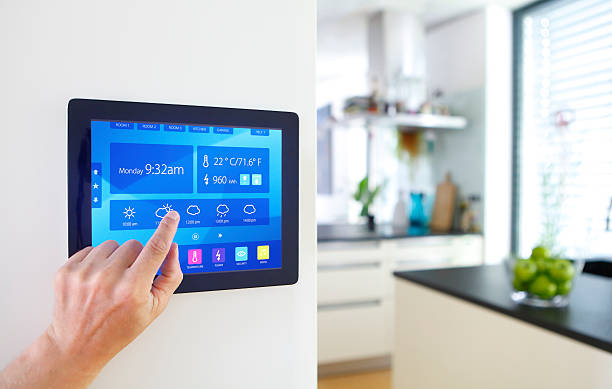Rise by Six: Your Daily Dose of Inspiration
Explore insights and stories that elevate your day.
Smart Homes: Where Your Refrigerator Has Better Wi-Fi Than You
Discover the future of living! Explore how smart homes outsmart you, with fridges boasting better Wi-Fi. Join the revolution today!
The Rise of Smart Appliances: How Your Refrigerator Became the Smartest Device in Your Home
The rapid advancement of technology has ushered in a new era where our home appliances are becoming smarter, and none is more prominent in this transformation than the humble refrigerator. Once merely a box for storing food, modern refrigerators now come equipped with an array of smart features that enhance convenience, efficiency, and connectivity. These smart appliances can monitor your food inventory, suggest recipes based on available ingredients, and even notify you when you are running low on essentials. As we increasingly rely on automation, the refrigerator has transformed into a central hub of household management, making it arguably the smartest device in our homes.
With the integration of Internet of Things (IoT) technology, smart refrigerators can connect to your home Wi-Fi, allowing you to control settings, access apps, and receive updates directly from your smartphone or tablet. Features like touchscreens help you plan meals, while internal cameras provide a view of your food stock without opening the door, thus saving energy. Additionally, the capability to sync with other smart home devices enhances the experience further, allowing users to adjust settings effortlessly through voice commands. As energy-efficient designs and innovative functionalities continue to emerge, the rise of smart appliances signifies a fundamental shift in how we interact with our living spaces, with the refrigerator leading the charge.

5 Ways Smart Refrigerators Are Changing the Way We Manage Food
In today's fast-paced world, smart refrigerators are revolutionizing the way we manage food at home. These innovative appliances utilize advanced technology to enhance food storage, help reduce waste, and promote healthier eating habits. One of the most significant benefits is their ability to track inventory. By scanning barcodes or using sensors, smart refrigerators can maintain an updated list of what you have on hand. This feature makes meal planning easier and helps you avoid purchasing items you already own, ultimately contributing to better food management and a more organized kitchen.
Additionally, smart refrigerators often come equipped with built-in meal planning apps and recipe suggestions tailored to the ingredients you have available. This functionality not only inspires creativity in the kitchen but also encourages users to use up perishable items before they spoil. Another game-changing feature is the ability to set expiration date reminders, which notify you when food items are nearing their shelf life. As a result, smart refrigerators not only streamline the cooking process but also play a crucial role in reducing food waste, making them an essential tool for the modern home.
Is Your Refrigerator Truly Smart? Understanding the Technology Behind Connected Appliances
In today's digital age, the term smart refrigerator is becoming increasingly prevalent, captivating the interest of tech enthusiasts and casual consumers alike. But what does it truly mean for a refrigerator to be 'smart'? These connected appliances are equipped with advanced technology that allows them to communicate with users and integrate seamlessly into the smart home ecosystem. Features such as Wi-Fi connectivity, touch screens, and compatibility with voice assistants like Amazon Alexa or Google Assistant enable homeowners to monitor and manage their fridge remotely. For instance, users can check the temperature of their fridge, receive alerts for maintenance, or even get inventory updates on their groceries—all from the convenience of their smartphone.
Moreover, the technology behind smart refrigerators goes beyond just connectivity. Many models come with built-in cameras that allow users to see the contents of their fridge without opening the door, which can save energy and reduce waste. Enhanced capabilities such as meal planning suggestions, recipe integrations, and energy usage tracking are becoming commonplace. However, the question remains: are these features worth the cost? As consumers navigate their options, it's essential to assess whether the added functionalities align with their lifestyle needs and if they truly enhance the overall value of the appliance.